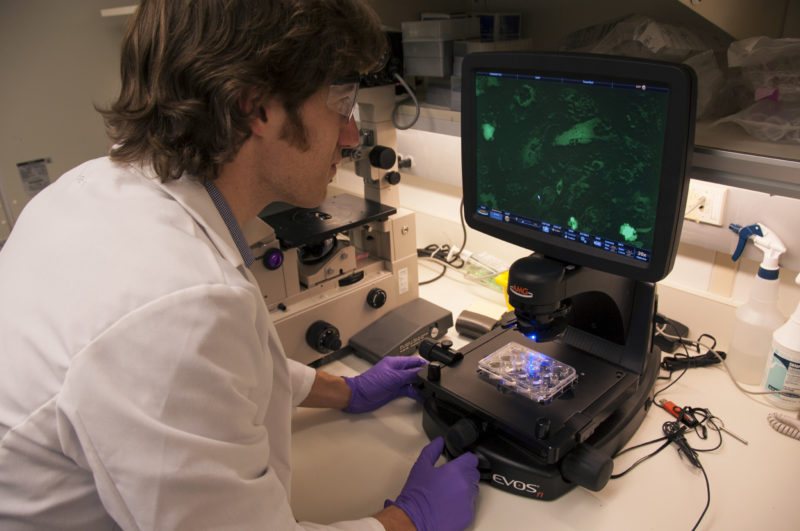
The law does not require stem cell therapy clinics to receive FDA approval.
By Alexandra Hart June 27, 2017 1:14 pm Health & Science

U.S. Food and Drug Administration/Wikimedia Commons (Public Domain)
Beginning Sept. 1, a new “right to try” law will provide desperately ill patients in Texas access to stem cell therapies. Patients who have run out of conventional treatment options can opt for stem cell therapies that may or may not offer relief.
But these therapies have not been fully vetted by the Food and Drug Administration. The Texas law is the first of its kind in the U.S. Proponents say it offers hope for seriously ill patients. But some medical professionals say the clinics providing stem cell therapies are little more than snake oil operations.
Dr. Leigh Turner , an assistant professor at the Center for Bioethics at the University of Minnesota, has researched for-profit stem cell clinics in the U.S. He says evidence-based stem cell transplants do exist. They are most often used to treat blood diseases, including leukemia, multiple myeloma and lymphoma.
“The problem is that in Texas, there are a great many businesses that are making claims about stem cell treatments that don’t have evidence behind them,” Turner says.
What you’ll hear in this segment:
– Who provides unproven stem cell therapies
– What kinds of treatments stem cell providers offer
– What risks patients face when using unproven stem cell treatments
Written by Shelly Brisbin.